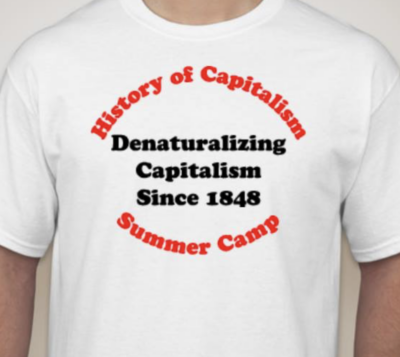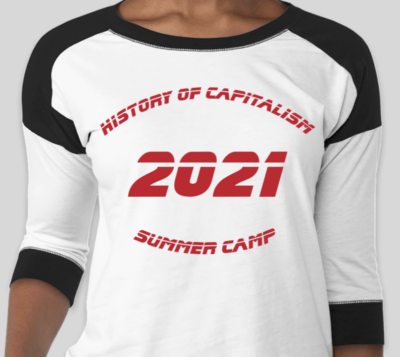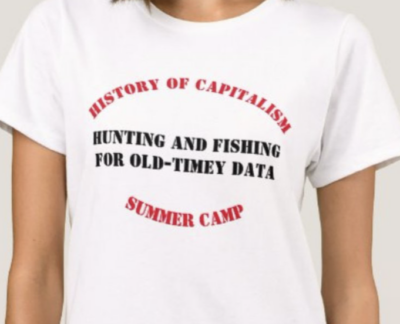TLDR:
 Where is the application?
Where is the application?
Here is the application. Enjoy. More information is below. Apply by April 1, 2025 for full consideration. For those interested, here is the preliminary schedule, housing, and food information, as well as faculty
Is there camp this year?
Yes! The camp will be at Johns Hopkins, where the camp director has moved. We are retooling for a return to “live” education.
How will this work?
You will submit an application through a Google form. We will read it.
Will it cost money?
Yes. Things cost money.
Seriously, give me a number.
It will cost $3000 for tenure-track faculty and $1500 for graduate students.
We always endeavor to hit zero profit for this endeavor (or as we say in higher ed, zero “net revenue”). So there is that.
What if something in this FAQ implies we will be in Ithaca? Or on Zoom?
It is a lying-liar-lyerson. The camp will be in Baltimore. That is the past. This is the future.
Is it prerecorded? Or on Zoom?
Certainly not. Perish the thought. We would never do that (unless we do it again).
So I need to be somewhere at a particular time?
Oh yes indeedy. 9 am to 6 pm with ample breaks for food and dancing.
I want to meet people!
You will. In person. Prepare for the smell of humans in Baltimore summer. Oh the delights!
What does the camp include?
Also breakfast and lunch. And a place to sleep (an actual totally okay hotel not even a hostel).
The camp includes all instruction and materials (including software and lots and lots of paper).
You bring a laptop.
When is the application deadline?
April 1, 2025
When is the camp?
June 3 to June 13, but you should show up on June 2.
Where is the camp again?
Baltimore, Maryland, USA. Home of Johns Hopkins University, the SNF Agora Institute, and Pink Flamingos.
I thought it was in Ithaca at Cornell?
The guy who brings lunch is changing jobs. If you want lunch, you gotta come to B’more.
Will we learn to read racing forms at Pimlico?
You will learn odds ratios just like the camp director did—by gambling on the ponies! We are not sure if Pimlico will be open again this summer, but we will gamble.
What else will be fun in Baltimore?
Oh sweet, sweet youth, the pleasures of Charm City are beyond compare.
Our great sage, John Waters, expressed it best:
“I would never want to live anywhere but Baltimore. You can look far and wide, but you’ll never discover a stranger city with such extreme style. It’s as if every eccentric in the South decided to move north, ran out of gas in Baltimore, and decided to stay.”
I am a VAP or an adjunct or am in some other way a precarious academic and don’t have access to departmental resources. What do I pay?
We can work something out (usually charging you like a grad student), but ask that you send an email explaining your situation ahead of time.
We are sensitive to the inequities of the tenure system and the veritable lottery that is the academic market.
We do our best. If your institution can’t pay, please tell us. It should not come out of your pocket.
Where do I send my essay?
There is no essay. How sweet is that?
Where do I send my letters from famous historians?
First of all, no historians are famous. Second, there are no letters.
I have a PhD in economics. Should I come?
No. This camp is not to teach you how to become a historian. It is for historians to learn how to engage with people like you.
I have a master’s degree in economics. Should I come?
No. See above.
If you want to meet people who do this, just come to the Business History Conference and drink beer in the bar. I assure you we will be there.
I do literature/anthropology/sociology/art history but I want to learn how to apply these methods to my field. Should I come?
Yes. A few people in allied humanities and qualitative social science fields come every year and enrich the conversation.
How are campers selected?
We look for a good fit between your project and what the camp offers. If you seem to already know everything that we teach, then that spot should go to somebody who would benefit more. We are very open to people who want to expand their proverbial wheelhouse. We also try to spread out the camp across universities.
I am an undergrad or recent undergraduate and want to bolster my chances for graduate school admission. Should I come?
No. We currently only accept graduate students, faculty, and historical professionals (like archivists). Please check back once you are in a program. We can’t wait to meet you.
I applied before and was rejected. Should I apply again?
It wasn’t you! It was us! We have no interest in keeping people away but sometimes there are structural forces that are larger than us (like room size).
Please apply again.
How much does the camp cost?
See above!
Why does it cost so much?
Paying economists to compress a semester’s worth of ideas into a one-day mega seminar that runs from 9 am to 6 pm costs money! Also, Johns Hopkins charges us for the rooms and the food. Also, for real, have you checked out the money supply?
We encourage everyone to reach out to their advisors (grad students) or department chairs (faculty) to see about financial support from their institutions. Usually, somebody finds somebody the money.
Never, not once, has money been a barrier.
Why does it cost so little?
Compared to other professional training programs, this seems very inexpensive. We keep costs down by not paying the director, applying for grants, and generally being scrappy.
If you, your professional organization, or somebody else would like to donate money, please be in touch! We will happily tout your beneficence.
You should get a grant.
I know. It happens sometimes.
If I were good at raising money, I would be a capitalist, not a historian of them! If you have ideas, tell me.
How do graduate students and faculty afford that?
Usually, they get their departments to pay for it. Ask your advisor or department chair.
Will I be reading Marx and Smith?
No. This camp is all about the boring necessary stuff that now you wish you knew, like accounting, python, economics, and data analysis, so that you can make sense of capitalist archives.
Will I be reading historiography and theory?
Again, no. You will be doing problem sets. You already know how to do that other stuff, silly.
Will we be reading history?
Don’t you already know how to do that? Here is a list to get you started.
Will I learn to use Excel? Python? AI?
Like a boss.
 Will I learn how to map data?
Will I learn how to map data?
For sure. And we will also be doing calculations on those maps. And using those maps to blow up conventional wisdom.
I want to talk with people who actually do this. How will you make that happen?
We will be Zooming with archivists from big corporations and famous librarians to talk about doing research there (and how to get grants!). We will also be talking with ordinary historians (that you probably read for your comps) that will talk about how they use these methods in their own work. We will also talk with historians who have gone on to use history of capitalism in other kinds of careers.
I am suspicious of the universalist claims of economics. Why should I come?
We are too, but you should still come, because you need to better understand what they are really saying so that you can engage with a broader world. It is time to get literate in the languages of power.
I don’t want to learn math. I want to learn how the economy works.
We do too. Some (basic) math is necessary to understanding how the economy works, however. We will also be covering many varieties of economic institutions.
This camp sounds presentist. Is it?
Yes, decidedly so.
The idea is that you learn contemporary thinking and techniques, which gives you a stable foundation (cough, cough ontology, cough cough) to allow you to historicize concepts. Understanding financial accounting today makes it much easier to understand slave accounting in the early 19th century. Understanding the weighted-average cost of capital today allows you to examine risk decisions in the 18th century more clearly. I promise. It is also presentist in the belief that to engage with policymakers today you will need to learn their language. This camp will empower you to more powerfully intervene in the world.
I don’t study 20th century U.S. history, should I still come? 
Absolutely. Campers have used their skills to study all regions of the world and all time periods (even ancient history!). The content has a US bias because the director/counselors work on the US but not because we think only the US should be studied.
Will I be debating how these methods will reshape the kinds of questions I can ask in historical research?
Yes. All the time. Especially over beer after class. It is a collective experience.
Will I make friends? I have a fear of summer camp.
Everybody is a history nerd here and you will feel the love. There are no required sports. Repeat. There are no required sports.
Do I need a laptop?
Yes.
The course uses a lot of software. You should be comfortable installing software (like Google Drive) and how to use your operating system to find files. (Yes, I have to say this.)
We expect a basic level of computer literacy. It is the 2020s and we are already living in the future.
That said, we will hold your hand.
Will there be some prework to get me up to speed? I am super nervous about math.
Nearly everybody at the camp has some anxiety about math. We have a well-trod prework program in accounting and math that will get you up to speed. Everybody marvels at what they are now capable of doing. It is super straightforward.
No. For real. I am super nervous about math.
You can read Derrida. I assure you that statistics is easier. Millions of people learn it every year. You can too.
What will math tell me?
By the end of the camp, you will be able to analyze why firms fail through their account books, what the asset value of being white was in 1955, and how central banks actually control the economy. Plus so, so much more. Also, did I mention new equally nerdy friends?
Also, you get a t-shirt.
Will this be fun?
More than you ever would have thought.
